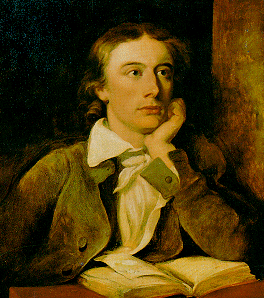
John Keats was born October 31st, 1795 in London, England. Keats struggled a hard life, at age eight his dad died from a fractured skull and seven years later his mom died of tuberculosis. Although he suffered so much at such a young age, he went on to become a surgeon. Not finding his occupation as a doctor enjoyable, he decided to quit and begin a new career as a poet. His sister and close friend were not in agreement with this and thought that his idea of becoming a writer was foolish and silly - he did not let this stop him. He went on to create some of his famous pieces such as St. Agnes Eve, When I Have Fears, To Homer, and many more. He was one of the key figures in the Romantic movement and spent a lot of time writing about topics that had conflicting themes such as life/death, mortal/ immortal, and separation/connection. Sadly, on February 23rd, 1821, at age 25, John Keats died of tuberculosis -- the same disease that his mother died of. Although his life was short, he made a huge impact in the world of poetry.
When I Have Fears
When I have fears that I may cease to be
Before my pen has gleaned my teeming brain,
Before high-piled books, charact'ry
Hold like rich garners the full-ripened grain;
When I behold, upon the night's starred face,
Huge cloudy symbols of a high romance,
And think that I may never live to trace
Their shadows, with the magic hand of chance;
That I shall never look upon thee more,
Never have relish in the faery power
Of unreflecting love! -- then on the shore
Of the wide world I stand alone, and think
Till Love and Fame to nothingness do sink



